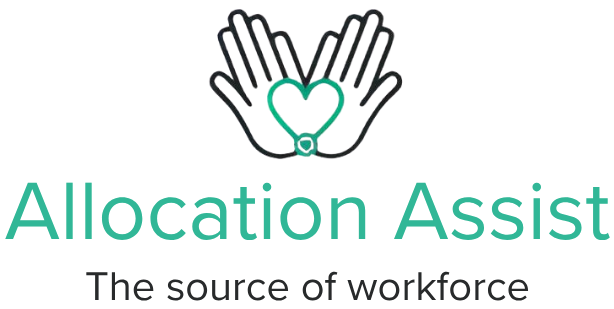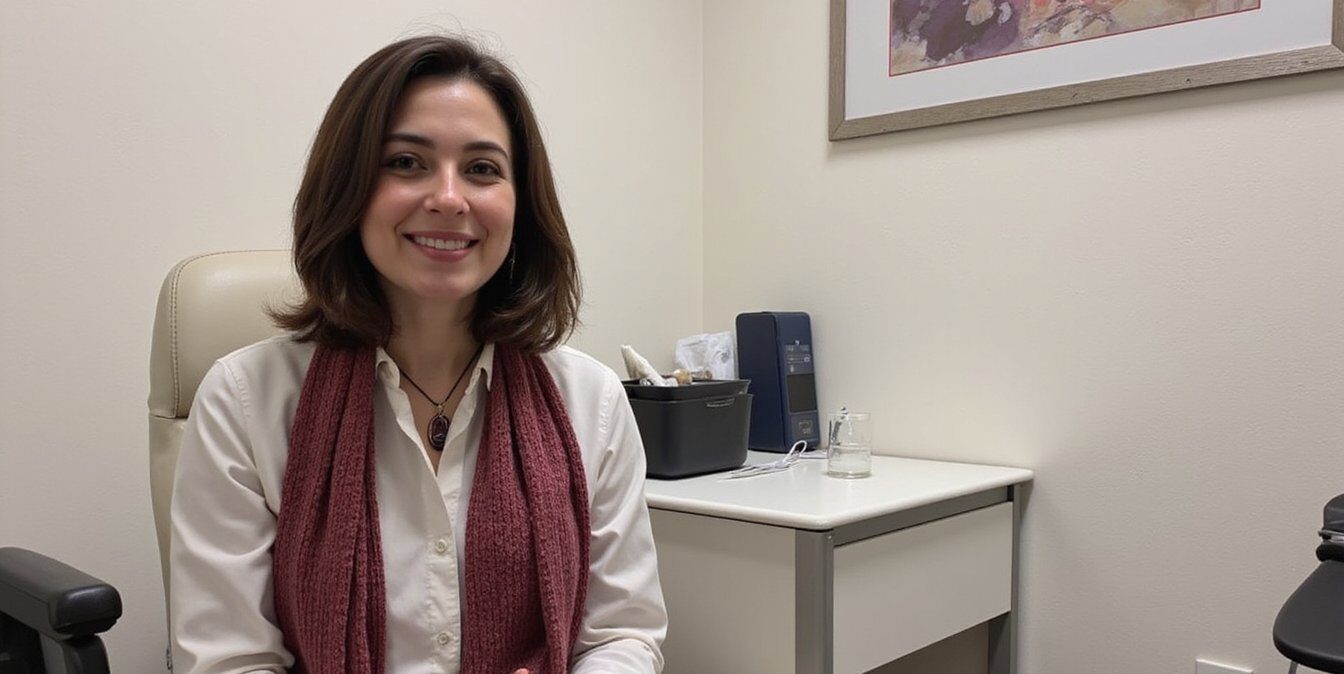To work as a healthcare professional in Dubai by 2025, you’ll need to secure a DHA license through an extensive credentialing process. You must complete Primary Source Verification via Dataflow, pass the DHA Prometric exam, and undergo standardized medical screenings at approved testing centers. Non-compliance can result in fines ranging from AED 500 to AED 2 million. Understanding the expanded infectious disease protocols and mandatory health insurance requirements will guarantee your seamless integration into Dubai’s healthcare sector.
Essential Credentials and License Requirements

To practice professionally in Dubai’s healthcare sector, you’ll need to obtain a DHA license through an extensive credentialing process. The mandatory requirements include submitting your recognized healthcare degree, professional qualification certificates, and recent employment documentation through the Sheryan Portal for electronic license validation. The renewal process has been streamlined to ensure continuity of practice.
Healthcare professionals like doctors, nurses, dentists, and pharmacists must pass a DHA Prometric exam to qualify for licensure. You’ll need to complete Primary Source Verification through Dataflow, which typically takes 6-8 weeks. Your educational credentials must be attested by the Ministry of Foreign Affairs, and you’ll need a valid good standing certificate from your previous licensing authority. Under DHA’s supervisory license oversight, your initial license remains valid for 1-2 years. For surgical specialties, you must provide a detailed 2-year logbook demonstrating your expertise. The process requires careful attention to documentation and timing to guarantee seamless validation. Healthcare professionals licensed in other Gulf countries must also secure a DHA license before practicing in Dubai.
Medical Examination Changes and Compliance
You’ll need to complete medical screenings at DHA-approved testing centers under Dubai’s new 2025 standardization requirements, with strict infectious disease protocols focusing on TB and HIV detection. Healthcare professionals must complete the DHA competency exam before receiving medical practice authorization. The process typically takes 2-6 months for full licensing approval. Non-compliance with these medical examination standards will result in penalties ranging from AED 500 for minor infractions to AED 2 million for serious violations. Your employer must verify your test completion through approved facilities before processing work permits, residency visas, or professional driving licenses. The new framework aims to establish consistent health screening processes across Dubai’s healthcare facilities, replacing the previously fragmented approach.
New Testing Center Requirements
Beginning in July 2025, Dubai’s medical examination protocols will undergo significant centralization under the Dubai Health Authority (DHA), requiring all residence visa, employment visa, and driving license applicants to complete mandatory screenings at DHA-approved centers.
Under this centralized oversight, you’ll need to undergo expanded infectious disease screening protocols, including tests for HIV and TB. Healthcare professionals must complete the DHA licensing exam to demonstrate clinical competence before practicing. You must obtain your medical clearance through authorized centers only, as the DHA won’t accept manual or non-approved reports. The examinations are conducted through Prometric testing centers, which maintain globally standardized protocols. For healthcare roles, particularly in direct patient care, you’ll be subject to mandatory retesting requirements to maintain eligibility. Your employer must verify your medical clearance before finalizing any contracts or sponsorship transfers. Failure to comply with these requirements will result in application rejection and possible penalties.
Financial Penalties For Non-Compliance
Dubai’s new medical compliance framework establishes three tiers of financial penalties for employers and individuals who fail to meet examination requirements. You’ll face fines ranging from AED 500 to AED 1 million per violation, with penalty escalation for repeat offenses up to AED 2 million within a 12-month period. The new law aims to create a healthy living environment that attracts business and investment to Dubai. Employers must settle all end-of-service benefits within 14 days of employment termination.
The DHA and MoHRE maintain strict compliance monitoring through digital systems and regular audits. Employers must ensure all part-time workers receive comprehensive coverage under the new regulations. To guarantee these severe consequences are avoided, you must:
- Conduct standardized pre-employment medical examinations
- Complete residency-related health assessments within mandated timeframes
- Confirm proper health insurance coverage meets 2025 requirements
Non-compliance triggers immediate administrative actions, including visa processing blocks and public listing of violations. These measures aim to enforce rigorous adherence to updated health regulations while protecting employee welfare.
Infectious Disease Screening Protocols
Beyond financial penalties, thorough medical screening requirements represent a cornerstone of Dubai’s 2025 employment regulations. Under DHA’s unified protocols, you’ll need to undergo exhaustive testing for HIV, TB, hepatitis B, hepatitis C, leprosy, and syphilis at approved health centers.
You must guarantee your patients complete blood tests, chest X-rays, and physical examinations while maintaining strict medical record privacy standards. For specific occupational categories with heightened health risks, you’ll need to conduct supplementary screenings beyond the standard protocol. The DHA’s centralized database tracks all results, integrating them with visa and licensing systems. The fitness test requirement must be completed and cleared before starting any healthcare employment position. You’re required to report positive results for communicable diseases, as these will affect employment eligibility. Remember, clearance certificates remain valid for multiple application types within their expiry timeframe.
Work Visa Process and Sponsorship Details
Your employer must be a licensed healthcare facility registered with MoHRE to initiate your work visa sponsorship in Dubai. You’ll need a formal employment contract specifying your role, compensation, and duration before the visa application can proceed. The sponsoring facility assumes responsibility for your visa fees, mandatory health insurance coverage, and ongoing compliance with UAE employment regulations. After securing a job offer, you must submit your educational credentials verification along with other required documentation. All application documents must be provided in both English and Arabic formats as per UAE visa requirements. Upon arrival, you have a 60-day window to complete all medical examinations and residency requirements.
Employer Sponsorship Requirements
When seeking employment in Dubai’s healthcare sector, foreign professionals must secure employer sponsorship through a licensed facility registered with the Dubai Health Authority (DHA) or Ministry of Human Resources and Emiratisation (MoHRE). Your potential employer handles all visa processes, addressing foreign worker clearance and recruitment challenges while ensuring compliance with UAE labor laws.
To qualify for sponsorship, you’ll need to meet these critical requirements:
- Hold minimum qualifications (MBBS for doctors, B.Sc. for nurses) with 2-5 years of experience
- Present verified credentials through DataFlow and clean criminal records
- Pass mandatory health screenings for tuberculosis, hepatitis, and other conditions
Your employer maintains responsibility for visa validity, medical insurance coverage, and contract compliance throughout your employment term. They’ll also manage visa renewals or terminations based on your employment status.
Visa Cost Breakdown
Understanding Dubai’s visa cost structure requires careful attention to multiple fee categories and mandatory charges for the upcoming year. You’ll need to budget AED 3,000-7,000 for a standard employment visa, while mainland visas may reach AED 12,430. Healthcare professionals face supplementary expenses for certificate attestation and regulatory compliance.
Your employer will cover the basic visa fees, medical examination (AED 700-980), and Emirates ID costs. However, you’re typically responsible for document handling costs, including translation and legalization (AED 5,000-10,000). If you’re working with recruitment agencies, expect service fees ranging from ₹20,000 to ₹60,000 for Indian applicants. The process takes 5-7 working days after submission, though healthcare professionals may experience longer timelines due to additional regulatory requirements for medical credentials.
Healthcare Market Dynamics and Salary Expectations

Dubai’s healthcare sector demonstrates remarkable growth trajectory, with an 8.5% annual expansion rate projected for 2025 and total investment reaching AED118 billion by 2027. You’ll find significant opportunities driven by AI-driven diagnostics and telehealth expansion, with technology reducing diagnostic errors by 40% and treatment wait times by 50%.
As a healthcare professional, you can expect:
- Competitive monthly salaries ranging from AED 25,000-45,000 for general practitioners to AED 40,000-80,000+ for specialists
- Extensive benefits including annual flights, housing allowance, and health insurance
- Amplified compensation for digital health expertise, bilingual capabilities, and medical tourism roles
The private sector’s 9.5% annual growth rate surpasses public sector spending, creating plentiful employment opportunities, particularly in oncology, radiology, and primary care specialties where skill shortages persist.
Mandatory Health Insurance Guidelines
Beyond competitive salaries and benefits, healthcare professionals must navigate detailed mandatory health insurance requirements taking effect January 1, 2025. You’ll need compliant coverage before obtaining or renewing your Dubai residency permit, with policy administration handled through DHA-accredited insurers.
| Coverage Type | Key Requirements | Implementation |
|---|---|---|
| Basic Plan | Emergency care, consultations, diagnostics | Starting AED 320/year |
| Preventive Care | Vaccinations, screenings | No waiting period |
| Chronic Disease | Diabetes, hypertension management | Full coverage required |
| Pre-existing Conditions | Immediate coverage | No exclusions permitted |
Your employer must provide minimum-compliant coverage without salary deductions. Dependent coverage requirements vary by emirate, with Abu Dhabi mandating family coverage while Dubai handles dependents separately. Self-employed professionals must secure private insurance meeting DHA standards.
Legal Framework and Documentation Standards

When entering Dubai’s healthcare sector in 2025, you’ll need to navigate an all-encompassing regulatory framework overseen by the Dubai Health Authority (DHA) and Ministry of Health and Prevention (MOHAP).
Dubai’s healthcare landscape in 2025 demands full compliance with DHA and MOHAP regulations before professionals can begin practicing.
Your documentation must adhere to strict standards, with professional experience documentation requiring certified English translations for non-English materials. The Sheryan Portal serves as your primary platform for submission and verification.
Key compliance requirements include:
- Valid passport and clear identification scans, with all certificates uploaded in prescribed format
- Experience letters covering 2-5 years minimum, with no practice gaps exceeding two years
- Active credentials and professional license from your last country of employment
Any history of blacklisting or misconduct will result in immediate application denial. DataFlow verification typically takes 6-12 weeks for background and credential checks.
Frequently Asked Questions
What Happens if I Fail the DHA Standardized Medical Exam?
If you fail the DHA standardized medical exam, you’ll lose your eligibility to work in Dubai’s healthcare sector and face immediate license invalidation. You can retake the exam after a mandatory waiting period, typically 3-6 months. You’ll need to restart the application process and may pursue an exam appeal process if you have supporting medical documentation. Be aware that repeated failures could result in blacklisting from UAE health authorities.
Can I Practice Privately While Waiting for My License Approval?
No, you can’t practice privately while your license application timeline is in process. DHA regulations strictly prohibit any independent healthcare activities during this private practice period. You’ll face severe penalties including license rejection, fines, and potential professional bans if you provide medical services before receiving full DHA approval. You must wait until your credentials are verified and your license is officially granted before engaging in any patient care activities.
Are There Language Proficiency Requirements Besides English for Medical Professionals?
No, you don’t need language competency standards beyond English for medical licensing in Dubai. While healthcare facilities may value specialized language skills like Arabic, Hindi, or Tagalog, these aren’t regulatory requirements. You’ll only need to demonstrate English proficiency through the OET exam, requiring a minimum grade of B (350) in all modules. Any non-English documentation you submit must include certified English translations for licensing purposes.
How Often Must Healthcare Professionals Renew Their DHA Licenses?
You’ll need to renew your DHA license annually, with the license renewal process beginning up to 90 days before expiry. Your license renewal duration is typically one year, though some categories offer extended validity periods of 2-3 years. You must complete the renewal through the Sheryan system and can renew up to 3 months after expiry, but you’ll face monthly penalties. After 6 months post-expiry, your license will be automatically canceled.
Can I Transfer My Sponsorship to Another Healthcare Employer During Contract?
You can transfer sponsorship during your contract, but you’ll need to follow strict protocols. Initially, you must properly terminate your existing contract by submitting a resignation and obtaining a No Objection Certificate (NOC) from your current employer. To change employment contract, you’ll need to meet minimum service requirements (typically 6-12 months) and guarantee you’re not violating any non-compete clauses. The transfer process takes 4-8 weeks through MOHRE or Free Zone authorities.








